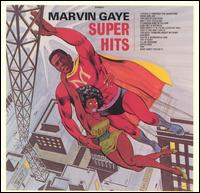| Super Hits | ||||
|---|---|---|---|---|
 | ||||
| Greatest hits album by | ||||
| Released | September 1970 [1] | |||
| Recorded | 1962–69 | |||
| Length | 44:44 | |||
| Label | Tamla | |||
| Producer | William "Mickey" Stevenson, Brian Holland, Lamont Dozier, Frank Wilson, Norman Whitfield, Smokey Robinson | |||
| Marvin Gaye chronology | ||||
| ||||
Super Hits is a compilation album by the American soul singer, songwriter, and producer Marvin Gaye. It was released in 1970 by Motown's subsidiary Tamla Records and compiles Gaye's pop-R&B singles recorded from 1962 to 1969. [2]